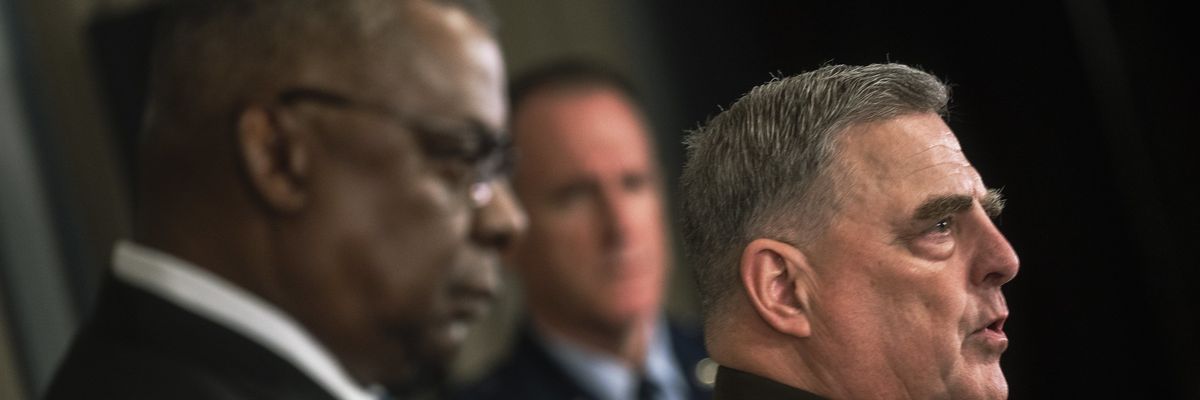When top U.S. and European defense officials meet at Ramstein Air Base in Germany on Friday to discuss the war in Ukraine, the biggest issue on the agenda will be how the coalition can continue to supply Ukraine with more sophisticated weapon systems.
Specifically, the Ukraine Contact Group, a formal assembly of some 50 nations, will be discussing tanks. Pressure will be on Germany to yield to demands from Britain, Poland, and the Baltic States to send Leopard 2 main battle tanks to Ukraine, and allow other NATO countries that have the tanks to do so too.
This would mark a significant advancement in Western military assistance to Ukraine. It could be seen as an escalation. German Chancellor Olaf Scholz has opposed sending the Leopards, despite intense pressure, including from members of his own coalition. He told the Guardian on Wednesday that “we want to avoid this becoming a war between Russia and NATO.” Later in the day, German officials told reporters it would not send Panthers unless the U.S. gave Ukraine American–made tanks, according to the Wall Street Journal.
(Update: on Monday, Polish officials said they might send their German-made Leopards to Ukraine whether Germany gives its approval or not.)
So far, the United States has refrained from sending its own M-1 Abrams tanks to Ukraine, though like Germany, it has sent infantry fighting vehicles (often misleadingly called “tanks”) and heavy artillery. The Biden administration has welcomed Britain’s promise to send 12 Challenger tanks. This is purely symbolic. On the other hand, the transfer of Leopards (Ukraine has said that it needs 300 Western tanks) would be an altogether more serious affair, even though it would take time to train Ukrainian troops to use them.
Any additional dispatch of additional Patriot anti-missile batteries is far less controversial, because they will be used to defend Ukrainian infrastructure from Russian missiles — a goal on which all NATO countries are agreed.
The discussion of how far the West should go in supplying advanced tanks is important but it raises critical, strategic questions about where the coalition truly wants from what could be interpreted as an escalation by Russia. The following are the key questions they should be asking themselves — but likely are not.
1. How do our plans for military assistance to Ukraine fit into our broader strategy for ending the war?
2. Given the Biden administration's justified desire to avoid a direct military conflict with Russia, what should the allies be doing to prevent an incremental slide into ever deeper U.S. involvement, as happened in Vietnam?
3. What should the U.S. and NATO be doing to plan for surprise Russian moves, such as disabling satellites vital to U.S./Ukrainian command and control of precision-guided munitions?
4. Are these partner governments prepared to back Ukraine to reconquer all the territory it has lost since 2014 — including Crimea and the eastern Donbas as suggested in this Wednesday New York Times article — even at the risk of Russia escalating towards war with NATO and the use of nuclear weapons?
5. If not, at what stage and along what lines do they want Ukraine to call a halt, and what pressure are they prepared to bring to bear in order to achieve this?
6. If neither side achieves a breakthrough and the war becomes a stalemate, at what stage will the destruction of Ukrainian infrastructure and the cost of supporting Ukraine necessitate the search for a ceasefire?















